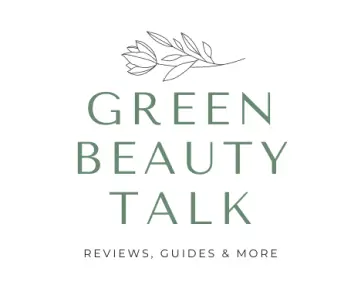
Skincare is a world filled with rich diversity. Our skin, a complex and dynamic canvas, varies greatly from person to person. It carries our heritage, protects us, and tells our unique stories. However, the care it needs isn’t universal; it’s deeply personal.
Recognising the variety of skin types and their individual needs is essential in selecting the right skincare treatments. Whether you have sensitive, dry, oily, combination, or normal skin, understanding and embracing your unique type is the first step towards nurturing and caring for your skin effectively.
Understanding Your Skin Type: The First Step to Proper Care
Before diving into specific treatments, it’s crucial to understand your unique skin type. This requires observation and, sometimes, professional consultation. Factors like oiliness, sensitivity, and hydration levels play a significant role in determining your skin’s needs.
For instance, dry skin may feel tight and have flaky areas, demanding intense hydration. In contrast, oily skin, characterised by an excess of sebum, requires balance and oil control.
Recognising these characteristics isn’t a mere aesthetic exercise; it’s a health practice that can help prevent issues like breakouts, irritation, and premature ageing.
Sensitive Skin: Gentle Nurturing
Sensitive skin, prone to redness, itching, and irritation, requires a gentle approach. It’s essential to avoid harsh chemicals, fragrances, and dyes, which can aggravate the skin. Instead, opt for hypoallergenic and non-comedogenic products that calm and soothe.
Treatments should focus on reducing inflammation and strengthening the skin barrier. Ingredients like aloe vera, oatmeal, and chamomile are known for their soothing properties. Always remember to patch test new products to ensure they don’t cause a reaction.
Dry Skin: The Quest for Hydration
Hydration is the key for dry skin types. Treatments should focus on locking in moisture to combat tightness and flaking. Look for products containing hyaluronic acid, glycerine, or ceramides, which attract and hold moisture.
Regular exfoliation is also vital to remove dead skin cells, allowing moisturisers to penetrate more effectively. Avoid over-washing and harsh cleansers, and instead choose creamy formulations that hydrate while they cleanse.
Oily Skin: Balancing Act
Managing oily skin means adopting strategies to balance sebum production without stripping the skin. Over-cleansing can backfire, as it may trigger even more oil production. Opt for light, water-based products and non-comedogenic formulations that provide the necessary hydration without clogging pores.
Treatments with salicylic acid can help manage acne, while niacinamide can assist in regulating oil gland activity. Additionally, clay masks can be effective treatments, offering deep cleansing and oil absorption.
Combination Skin: The Best of Both Worlds
Combination skin, characterised by an oily T-zone and dry cheeks, requires a targeted approach. It’s about balancing regions with different needs.
Light, hydrating products are generally safe for the entire face, but the T-zone may benefit from additional treatment with oil-regulating products. Conversely, the cheeks and other dry areas might need extra moisturising care.
Sometimes, using different products on different areas of the face can achieve the best results.
The Universal Importance of Sun Protection
Regardless of skin type, protection from the sun is crucial. UV rays are harmful and can lead to premature ageing, hyperpigmentation, and increased risk of skin cancer.
Always use a broad-spectrum sunscreen with a minimum SPF of 30. Sun protection isn’t just a daytime routine; it’s a critical health practice for everyone.
Professional Guidance for Customised Care
While understanding your skin type and general guidelines is beneficial, nothing beats personalised advice from skincare professionals.
Dermatologists and licensed estheticians can provide comprehensive skin analysis and recommend treatments or products tailored specifically for your skin type and concerns. They can also help identify any underlying conditions or issues that require more than just cosmetic care.
Conclusion: Embracing Your Unique Skin Story
Your skin is as unique as you, and its care is a personal journey. By understanding its distinct characteristics and needs, you can select the most effective treatments to maintain its health and vitality.
Remember, the diversity in skincare is a reflection of our human diversity – and that’s something to celebrate and care for with kindness and understanding. Whether you’re pampering yourself at home or seeking professional treatments, here’s to healthier, happier skin that tells your unique, beautiful story!

Petra Nakashian (previously Kravos) is a dedicated natural health and beauty blogger, driven by the loss of her parents to cancer, which led her to meticulously research beauty product ingredients. With over 10 years of experience, her in-depth knowledge has made her a trusted expert in the field. Founder of Be Healthy Now and Green Beauty Talk, Petra recently expanded her expertise with Beauty Insights Hub, exploring a wider range of beauty treatments. Committed to transparency and honesty, her work is a vital resource for navigating the complex world of beauty.

